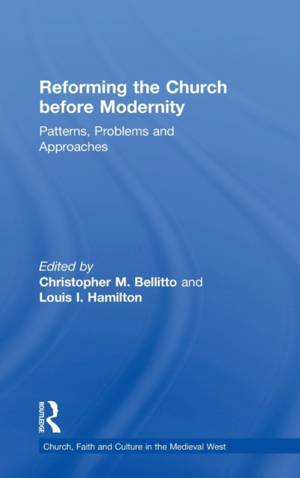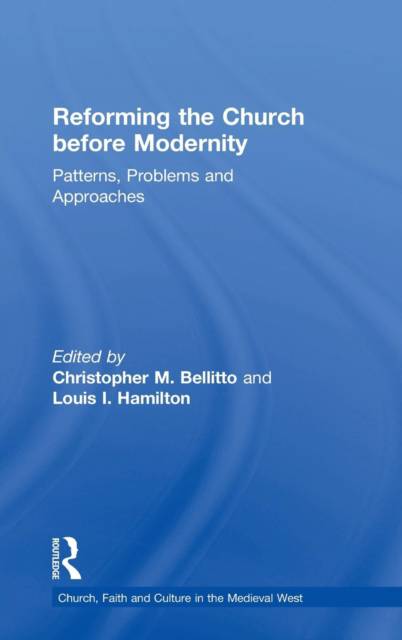
Je cadeautjes zeker op tijd in huis hebben voor de feestdagen? Kom langs in onze winkels en vind het perfecte geschenk!
- Afhalen na 1 uur in een winkel met voorraad
- Gratis thuislevering in België vanaf € 30
- Ruim aanbod met 7 miljoen producten
Je cadeautjes zeker op tijd in huis hebben voor de feestdagen? Kom langs in onze winkels en vind het perfecte geschenk!
- Afhalen na 1 uur in een winkel met voorraad
- Gratis thuislevering in België vanaf € 30
- Ruim aanbod met 7 miljoen producten
Zoeken
€ 290,45
+ 580 punten
Omschrijving
Reforming the Church before Modernity considers the question of ecclesial reform from late antiquity to the 17th century, and tackles this complex question from primarily cultural perspectives, rather than the more usual institutional approaches. The common themes are social change, centres and peripheries of change, monasticism, and intellectuals and their relationship to reform. This innovative approach opens up the question of how religious reform took place and challenges existing ecclesiological models that remains too focussed on structures in a manner artificial for pre-modern Europe. Several chapters specifically take issue with the problem of what constitutes reform, reformations, and historians' notions of the periodization of reform, while in others the relationship between personal transformation and its broader social, political or ecclesial context emerges as a significant dynamic. Presenting essays from a distinguished international cast of scholars, the book makes an important contribution to the debates over ecclesiology and religious reform stimulated by the anniversary of Vatican II.
Specificaties
Betrokkenen
- Auteur(s):
- Uitgeverij:
Inhoud
- Aantal bladzijden:
- 248
- Taal:
- Engels
- Reeks:
Eigenschappen
- Productcode (EAN):
- 9780754653554
- Verschijningsdatum:
- 7/10/2005
- Uitvoering:
- Hardcover
- Formaat:
- Genaaid
- Afmetingen:
- 156 mm x 234 mm
- Gewicht:
- 526 g

Alleen bij Standaard Boekhandel
+ 580 punten op je klantenkaart van Standaard Boekhandel
Beoordelingen
We publiceren alleen reviews die voldoen aan de voorwaarden voor reviews. Bekijk onze voorwaarden voor reviews.









